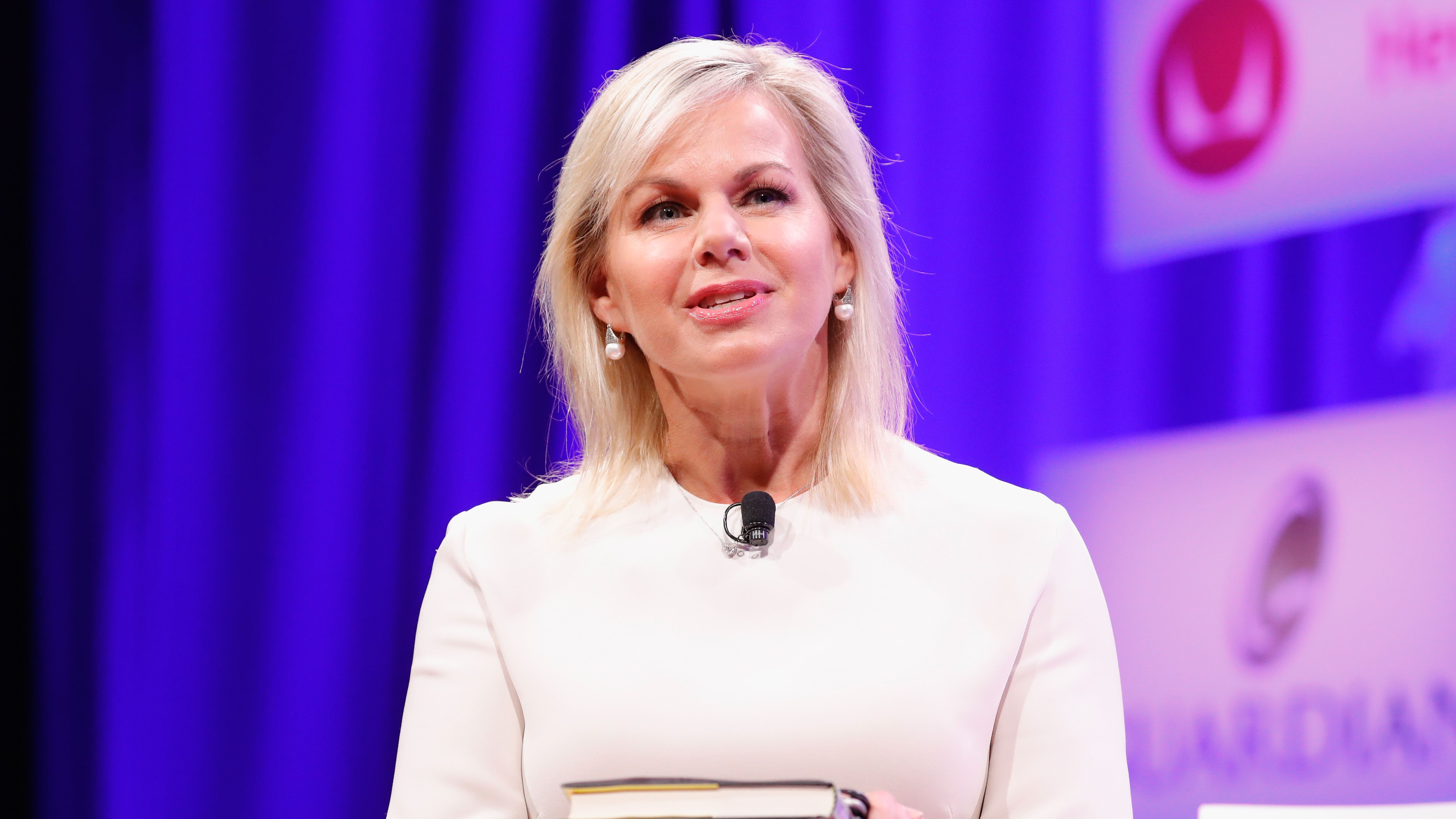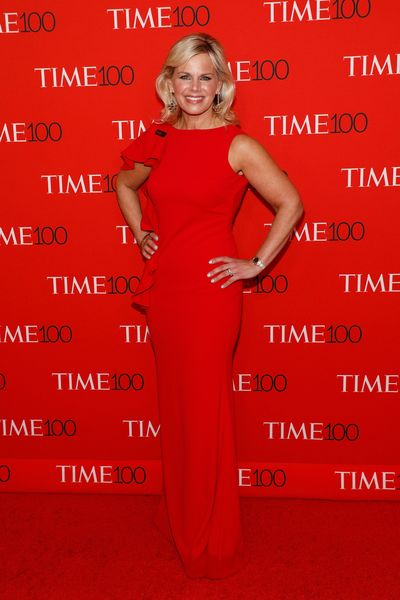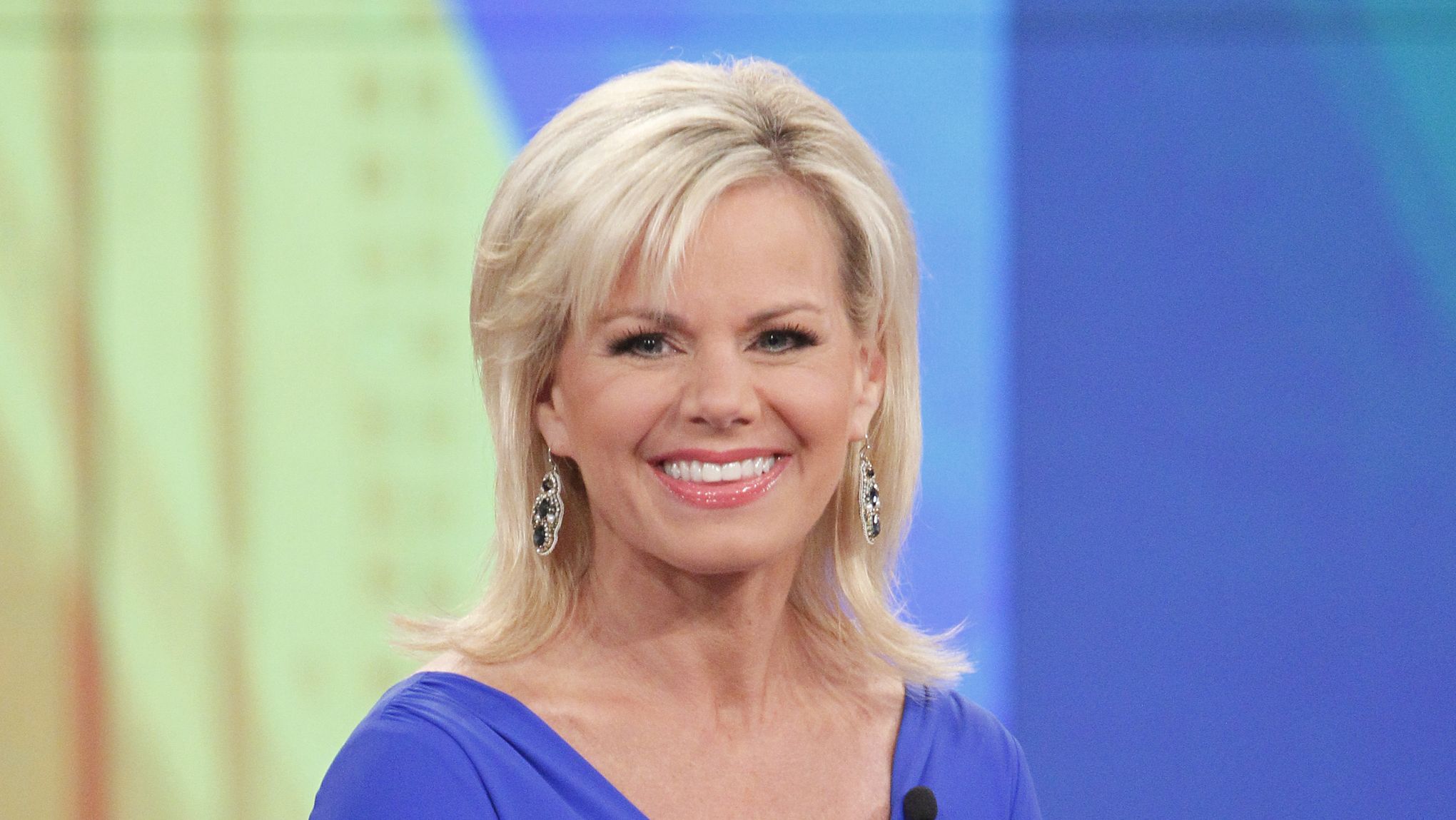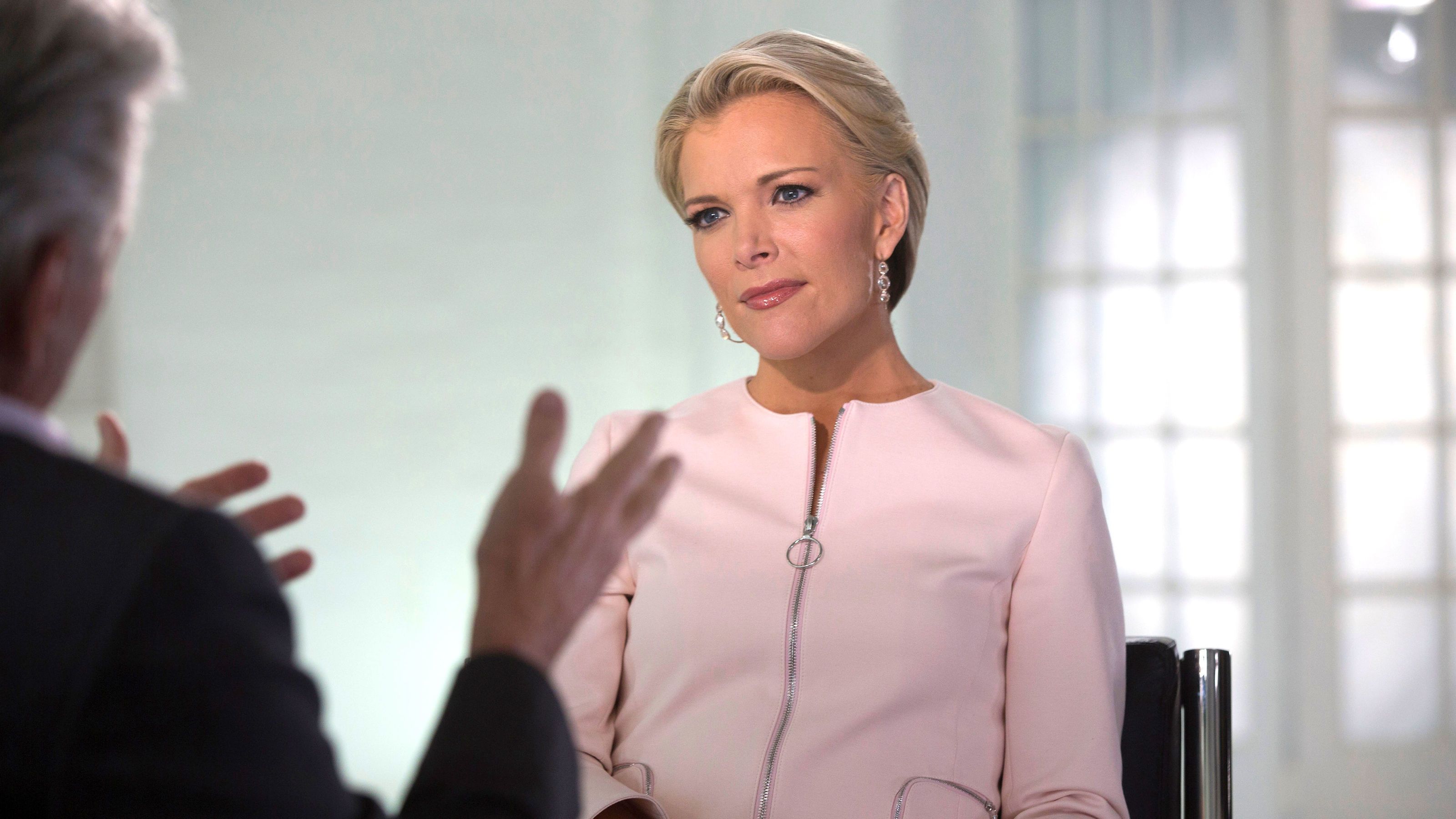Gretchen Carlson at TEDWomen: "Sexual Harassment Is a Man's Issue"
She exposed Roger Ailes and a wave of accusations followed. Here's what she says we need to do next.


Gretchen Carlson slayed the ultimate dragon. In July 2016, she sent shockwaves through the media industry when she filed a sexual harassment lawsuit against then-Fox News Chairman Roger Ailes, alleging she was fired for refusing his sexual advances. Her case opened the floodgates at the cable news network and eventually led to the departures of Ailes and famed hosts Bill O’Reilly and Eric Bolling, among others.
Carlson could have then kicked back and enjoyed her reported $20 million settlement, but instead, she’s thrown herself into advocating against policies—like forced arbitration clauses in contracts—that silence women. She's also using her platform to give the thousands of women experiencing workplace harassment a voice—and a playbook. In September, she released Be Fierce: Stop Harassment and Take Your Power Back, and last week at TEDWomen in New Orleans, she gave a talk on the three specific things we can do to create safer workplaces. Marie Claire caught up with Carlson just after she left the stage; here, she discusses what stops women from reporting abuse, why we need male allies, and calls on companies to rehire women whose careers have been ruined by bad men.

Carlson at the Time 100 gala, 2017.
Marie Claire: You started off your TED Talk by mentioning some incidents of sexual assault you experienced right after you were crowned Miss America. You said that, at the time, you didn't think of them as assault. It seems like a lot of women are looking back on their lives and seeing things that happened to them for what they are: crimes. Why do you think women are viewing past experiences in a different light now?
Gretchen Carlson: I think with assault, we don’t always call it that because we normalize all of this behavior. So then when someone really does cross the line, we’re like, ‘Well, it wasn’t that different from the bad comments, right?' I was interviewing Natasha Stoynoff, the People magazine writer that came out about President Donald Trump sexually assaulting her, for my book, and I was telling her these stories about things that had happened to me, and she was like, “You realize that’s assault?” And I was like, ‘No.’ She’s like, ‘Gretchen, that was assault.’ I was like, ‘Oh my gosh, you know, yeah, it was.’ So it goes to show you that you can be, not blind to it, but you can fool yourself into just trying to get past it.
Part of the story I didn’t tell in my talk is that more than 20 years after I was assaulted by a Los Angeles publicist, I saw that guy walk past my office and I went into panic mode. I suddenly felt like I was a 22-year-old again, back in the moment when I was the victim. I slammed my door and I started sweating and I was shaking and scared to death. When I later opened my door, I looked to make sure he wasn’t there and made a run for the elevator because I didn’t want to run into him. It goes to show you that those kinds of incidences never leave you and it’s a perfect example of what experiences like that can do to your psyche. You work so hard to be smart and respected and talented and then when you have an experience like that, it just drains out of you like blood—all of your confidence leaves you—and that is just so crushing, especially for young women when they’re just starting out in their professions.
I’m advocating for companies to stop making women sign confidentiality clauses—it's a human rights issue.
MC: Speaking of women just starting their careers, I noticed your book tour will include college campuses. Why did you want to speak to college students, specifically?
GC: I think it’s crucial to get to young people. Not to knock on the Greek system, but what are fraternities teaching young men about respecting women? Do they take that knowledge with them when they go into the workplace? Probably, right? So, my messaging is not just to empower women, it’s actually more directed at men because I think it’s important for the men on college campuses to hear a women’s perspective on how you shouldn’t behave in the workplace.
Stay In The Know
Get exclusive access to fashion and beauty trends, hot-off-the-press celebrity news, and more.
MC: The narrative is starting to turn to hold men more accountable, but slowly. I saw a viral post on Twitter that said something like, “The way we talk about sexual violence in general is so skewed. We always say 'this many women were raped,' not 'this many men raped women.'” It just always puts it back on women.
GC: That’s one of my huge messages: We’re not going to fix the sexual harassment epidemic unless we can acknowledge that this is not a women’s issue, this is a man’s issue. The burden should not be on the shoulders of women only to solve this, because we can’t do it alone and it’s not fair. We’re seeing now the tsunami of all these women coming forward, which is such a blessing, it’s so great. But the tipping point will be when men in the workplace decide to be our allies. When men stop being enablers and say, “I don’t want you to ever say that again. It’s not acceptable.” When they come forward and say, “I saw that happen to her and I defend her.” That’s a game changer.
RELATED STORIES



MC: We’re seeing all of these very high profile women like you saying they’ve been harassed or assaulted—that opens the doors for far less famous women to do the same thing. But I’ve been thinking a lot about working class women who are equally, if not more, affected and often face much greater risks if they speak out. Do you think this movement will get to the point where it’s helping them, too?
GC: Funny you mention that because that was a question that I got a lot when my story broke. How do you help the single mom working two jobs, who can’t afford to come forward, who doesn’t have the resources that I had, or the national platform, to be able to do what I did? One thing I’m doing to help is launching the Gretchen Carlson Leadership Initiative, which is a nine-city tour. There will be three days of workshops in each city, and they are free for underserved women. We’ll be teaching women about domestic violence and sexual harassment, how to become more civically and politically involved, because, often if you are a victim, you feel like your voice doesn’t matter. I want them to know that I care about their voice. Part of the funding for this initiative is for those women to get legal help, so they can figure out, “Okay, what am I going to do when I’m a waitress and I’m facing sexual harassment in the workplace?” I’m not saying that it’s going to solve every working-class woman’s problems, but it’s a start, and it’s probably what I’m most proud of since my whole story broke.
MC: What about changing laws? It’s great that you’re pushing legislation to curtail forced arbitration, but what’s next?
GC: It would be huge if we end forced arbitration, but the other thing that you’ve seen popping up in the news, and I’m advocating for, is for companies not to make women sign confidentiality clauses just to be able to come to work. I understand that companies need to keep some things secret—like business practices and trade secrets—but confidentiality clauses were never supposed to be keeping private what’s happening to people within the workplace. It’s a human right issue.
We have these sexual predators and the next day the media is talking about who’s going to rehire them. Who cares?
MC: One of my favorite parts of your speech was when you called on companies to hire back women whose careers were ruined by men who harassed or assaulted them.
GC: What drives me nuts is that we have these serial sexual predators, and they’re high profile people, and the next day the media is talking about who’s going to rehire them. I’m like, Who cares? Why would they be hirable again? I mean, I’m all for comebacks, but what about the women? Shouldn’t we be going back to them first? They had the American dream taken away from them.
MC: A lot of what women are going through right now is realizing it is just as bad as we thought—which is gratifying and depressing at the same time. How are you feeling?
GC: It is—that’s a good way to put it. We’ve been covering this stuff up for decades and cultural shifts don’t happen overnight—look how long the Civil Rights Movement took. We’re getting to the point now, though, where the genie can’t go back in the bottle. I could have never predicted that but I’m so emboldened by it. It’s made me wake up every day and realize I am so glad I’m a part of this movement. Just today, I was answering emails from senators that I’m meeting with when I go back to Washington D.C. One that I was really hoping to meet with on the Republican side said she wasn’t going to have time to meet with me. I replied and said, “Oh, it’s such a shame you’re on the wrong side of history.”
Kayla Webley Adler is the Deputy Editor of ELLE magazine. She edits cover stories, profiles, and narrative features on politics, culture, crime, and social trends. Previously, she worked as the Features Director at Marie Claire magazine and as a Staff Writer at TIME magazine.
-
 $20 and 30 Minutes Is All You Need for a Vacation-Level Glow
$20 and 30 Minutes Is All You Need for a Vacation-Level GlowSelf-tanner secrets, according to a beauty director.
By Hannah Baxter
-
 This Royal Couple Has the Most Pinned Celebrity Wedding of All Time—And a Surprising Royal Wedding Didn't Even Make The List
This Royal Couple Has the Most Pinned Celebrity Wedding of All Time—And a Surprising Royal Wedding Didn't Even Make The ListA new study found this ceremony gave Pinterest users the most inspiration.
By Kristin Contino
-
 Every Royal Family Obsessive Needs to Visit These 10 Destinations
Every Royal Family Obsessive Needs to Visit These 10 DestinationsFrom majestic castles to Queen Victoria's beach house and a retired royal yacht.
By Amy Mackelden
-
 Peloton’s Selena Samuela on Turning Tragedy Into Strength
Peloton’s Selena Samuela on Turning Tragedy Into StrengthBefore becoming a powerhouse cycling instructor, Selena Samuela was an immigrant trying to adjust to new environments and new versions of herself.
By Emily Tisch Sussman
-
 This Mutual Fund Firm Is Helping to Create a More Sustainable Future
This Mutual Fund Firm Is Helping to Create a More Sustainable FutureAmy Domini and her firm, Domini Impact Investments LLC, are inspiring a greater and greener world—one investor at a time.
By Sponsored
-
 Power Players Build on Success
Power Players Build on Success"The New Normal" left some brands stronger than ever. We asked then what lies ahead.
By Maria Ricapito
-
 Don't Stress! You Can Get in Good Shape Money-wise
Don't Stress! You Can Get in Good Shape Money-wiseFeatures Yes, maybe you eat paleo and have mastered crow pose, but do you practice financial wellness?
By Sallie Krawcheck
-
 The Book Club Revolution
The Book Club RevolutionLots of women are voracious readers. Other women are capitalizing on that.
By Lily Herman
-
 The Future of Women and Work
The Future of Women and WorkThe pandemic has completely upended how we do our jobs. This is Marie Claire's guide to navigating your career in a COVID-19 world.
By Megan DiTrolio
-
 Black-Owned Coworking Spaces Are Providing a Safe Haven for POC
Black-Owned Coworking Spaces Are Providing a Safe Haven for POCFor people of color, many of whom prefer to WFH, inclusive coworking spaces don't just offer a place to work—they cultivate community.
By Megan DiTrolio
-
 Where Did All My Work Friends Go?
Where Did All My Work Friends Go?The pandemic has forced our work friendships to evolve. Will they ever be the same?
By Rachel Epstein